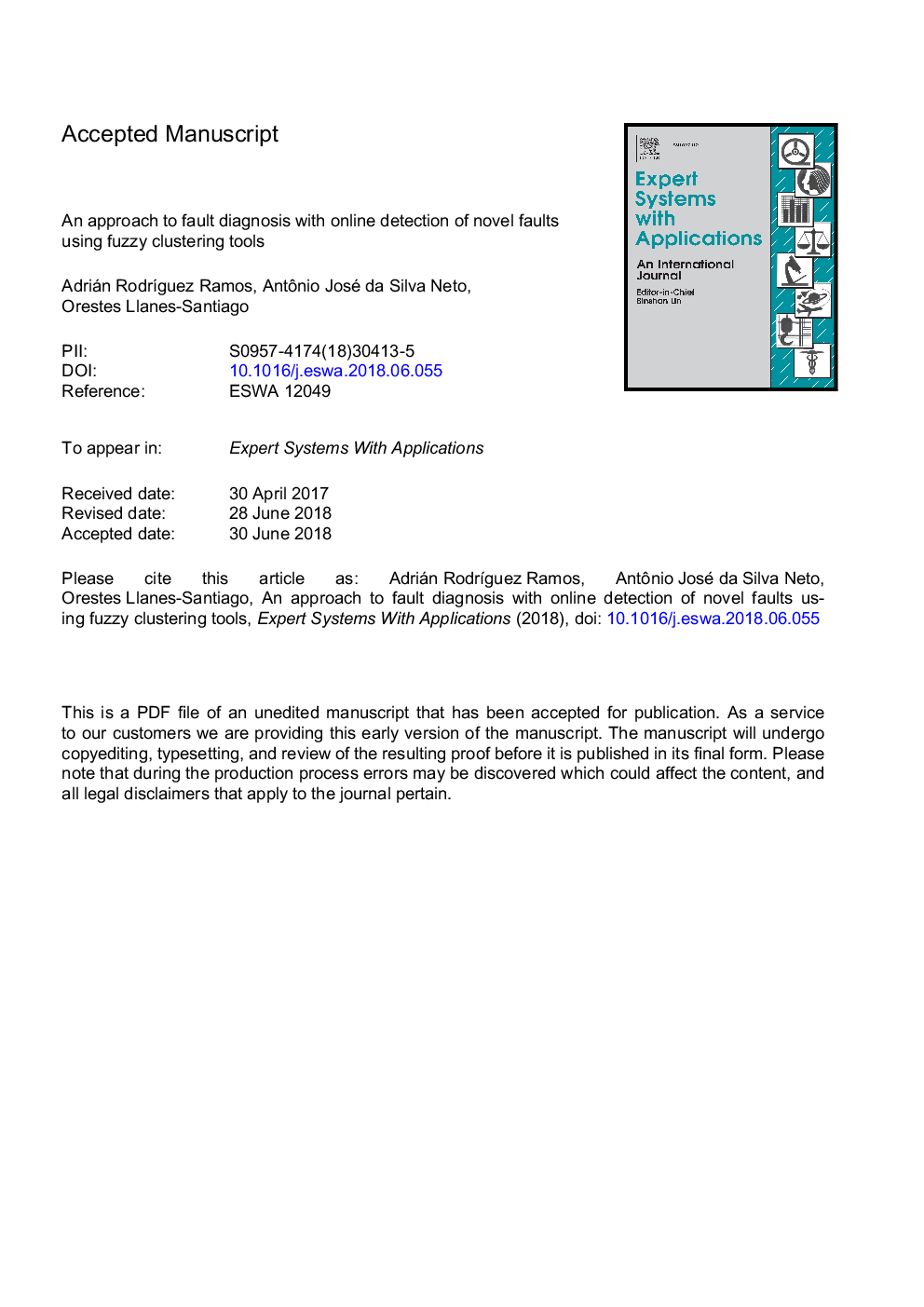| Article ID | Journal | Published Year | Pages | File Type |
|---|---|---|---|---|
| 6854704 | Expert Systems with Applications | 2018 | 45 Pages |
Abstract
This paper presents an approach to fault diagnosis with online detection of novel faults and automatic learning using fuzzy clustering techniques. In the off-line learning stage, the classifier is trained to diagnose the known faults and the normal operation state using the Density Oriented Fuzzy C-Means and the Kernel Fuzzy C-Means algorithms. In this stage, the historical data previously selected by experts, are firstly pre-processed to eliminate outliers and reduce the confusion in the classification process by using the Density Oriented Fuzzy C-Means algorithm. Later on, the Kernel Fuzzy C-Means algorithm is used for achieving greater separability among the classes and reducing the classification errors. Finally, the optimization of the two parameters used by these algorithms in the training stage is developed by using a bio-inspired optimization algorithm, namely the differential evolution. After the training, the classifier is used online (online diagnosis stage) in order to classify the new observations that are collected from the process. In this stage, the detection of novel faults based on density by using the DOFCM algorithm is applied. The algorithm analyzes the observations belonging to a window of time which were not classified into the known classes and it is determined if they are a new class or outliers. If a new class is identified, a procedure is developed to incorporate it to the known classes set. The proposed approach was validated using the Development and Application of Methods for Actuator Diagnosis in Industrial Control Systems (DAMADICS) benchmark. The results obtained indicate the feasibility of the proposed method.
Related Topics
Physical Sciences and Engineering
Computer Science
Artificial Intelligence
Authors
Adrián RodrÃguez-Ramos, Antônio José da Silva Neto, Orestes Llanes-Santiago,
